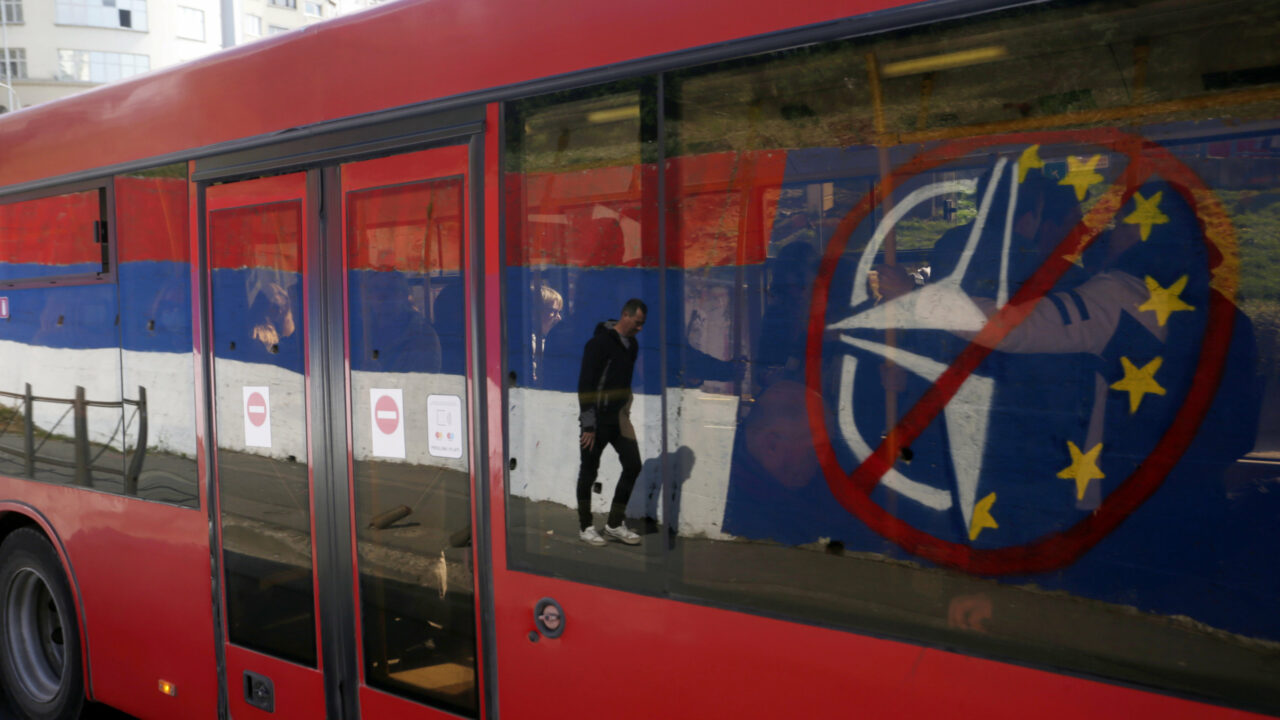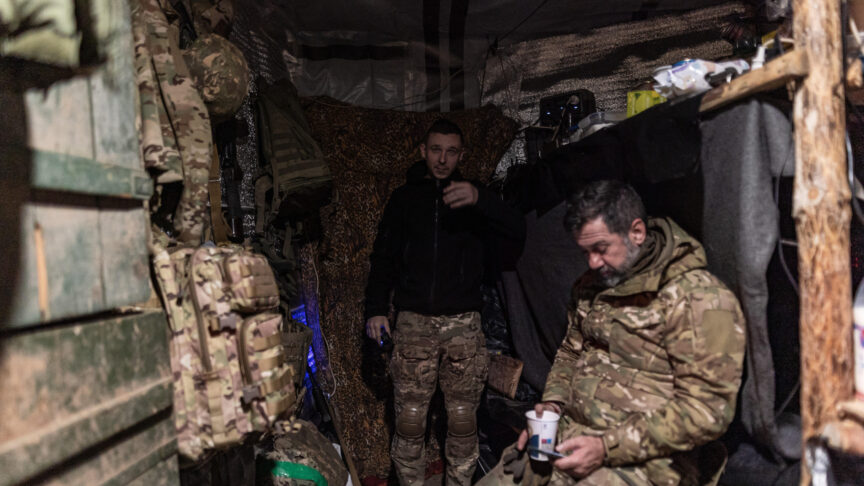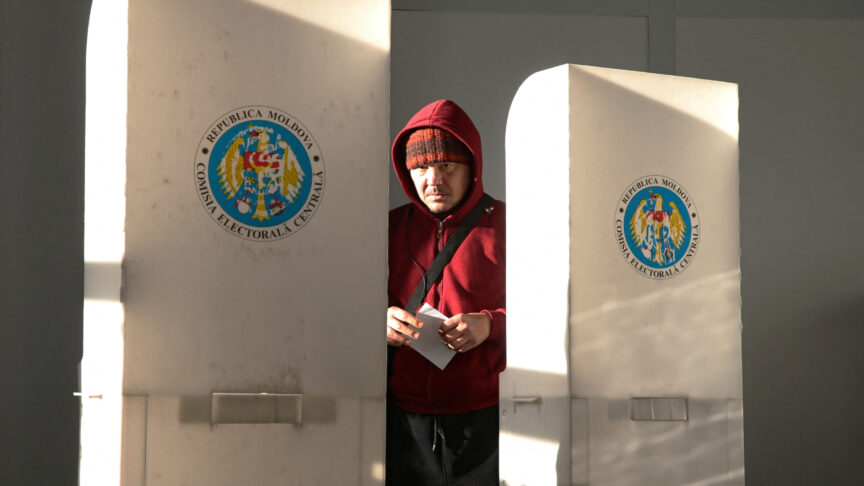Past talker: How the EU should respond to the Serbian president’s re-election
The EU needs to convince Serbia’s newly re-elected president that his country must choose between European integration and subservience to Russia
On 3 April, Serbia’s citizens voted in presidential, parliamentary, and municipal elections. The final results will be announced later in the week, but a preliminary count suggests that Aleksandar Vucic won 58.3 per cent of the vote in the presidential election, while his Serbian Progressive Party won 43.5 per cent in the parliamentary election. Yet the elections were far from fair. Serbia has experienced significant democratic backsliding in recent years – with Vucic’s autocratic nationalist party increasingly intimidating its political opponents, suppressing and co-opting media outlets to serve its interests, and passing legislation to remove potential obstacles to his re-election.
The elections are not only a concern for those who voted in them but also for citizens of countries that neighbour Serbia and are directly affected by political developments there, especially Bosnia and Herzegovina, Kosovo, Macedonia, and Montenegro. The revanchist policies of Vucic’s party are a threat to the stability of the Western Balkans. His interior minister, Aleksandar Vulin, promotes the idea of a “Serbian world” – a dangerous project based on the political and institutional unification of Serb communities across the Western Balkans. Such ideas only encourage similarly destabilising projects among other ethnic groups in the region.
All these projects are at odds with the democratic reforms that Western Balkans countries committed to when they began the process of integration with the European Union. Some of them initially made enough progress with these reforms that – for a short while, at least – EU membership seemed more than just a dream. But, since the mid-2010s, they have reversed some of these reforms. They now risk plunging the region into another dark period. Ethnic nationalism characterised by the glorification of war criminals and genocide denial, as well as arguments about exchanges of territory along ethnic lines and support for secessionist movements, is back in discussions on local TV and in communities.
Revanchism and Russia
Vucic has not distanced himself from the policies of former Serbian president Slobodan Milosevic, a one-time ally. By positioning himself as a strongman who will serve the so-called Serbian cause in the region, Vucic has copied elements of Milosevic’s leadership style. His persona is one of feigned humility; he presents himself as determined to save Serbs from a sinister ‘other’ who would threaten them.
In some of his public appearances, the resemblance with Milosevic is disturbing. He goes so far as to rephrase slogans that the former president used to incite hatred and conflict in the 1990s, such as “no one is allowed to beat you”. In an address to ethnic Serbs in northern Kosovo in 2018, he even said: “Milosevic was a great Serbian leader whose intentions were certainly for the best, but our results were very poor.”
Vucic’s policies have opened the way for Russia to build up its influence in the Western Balkans. His government has recycled Russian propaganda and increased military cooperation with Moscow. In October 2017, a few months after Vucic came to power, Serbia bought six MiG-29 jets from Russia. And, between 2018 and 2022, Serbia purchased Russian tanks, armoured vehicles, Pantsir S1 air defence systems, and anti-tank Kornet guided missiles.
In light of all this, one should not interpret Serbia’s recent vote in favour of a UN resolution condemning Russia’s war on Ukraine as an attempt to align with the West. By adopting a different position on the conflict, Serbia would have risked undermining the claims to territorial sovereignty it makes in its negotiations with Kosovo.
The EU’s response
The EU appears to be waking up to the growing threat of ethnic nationalism and Russian influence in the Western Balkans. This is reflected in the speech in which President Emmanuel Macron announced France’s priorities for its EU Council presidency. Yet, while this was a good first step, it has not yet led to the kind of substantive action that the EU needs to take to mitigate the risk of further conflict, changes in borders, and an expansion of Russian influence in the region.
The union should abandon its attempts to maintain stability through support for Vucic’s autocratic regime
Vucic’s re-election indicates that it will be some time before Serbia becomes a full democracy, but there are still many ways in which the EU can help the country and its neighbours build healthy societies. The union should abandon its attempts to maintain stability through support for Vucic’s autocratic regime – because this has clearly backfired. The EU should increase its support for Serbia’s opposition, civil society organisations, and free media outlets, which have been operating under constant threats. And it could try to weaken Vucic by sanctioning state-sponsored media companies that spread Russian propaganda throughout the Western Balkans.
The EU needs to convince Vucic that Serbia must choose between European integration and subservience to Russia. If Serbia continues to pursue EU membership, the union should use measures such as sanctions to deter further political and military cooperation with Russia. Regardless of the outcome of Russia’s war on Ukraine, it will be vital for the EU to develop a coherent policy on the Western Balkans that not only speeds up the EU integration process where possible but also provides security guarantees to countries such as Kosovo and Bosnia.
The European Council on Foreign Relations does not take collective positions. ECFR publications only represent the views of their individual authors.



